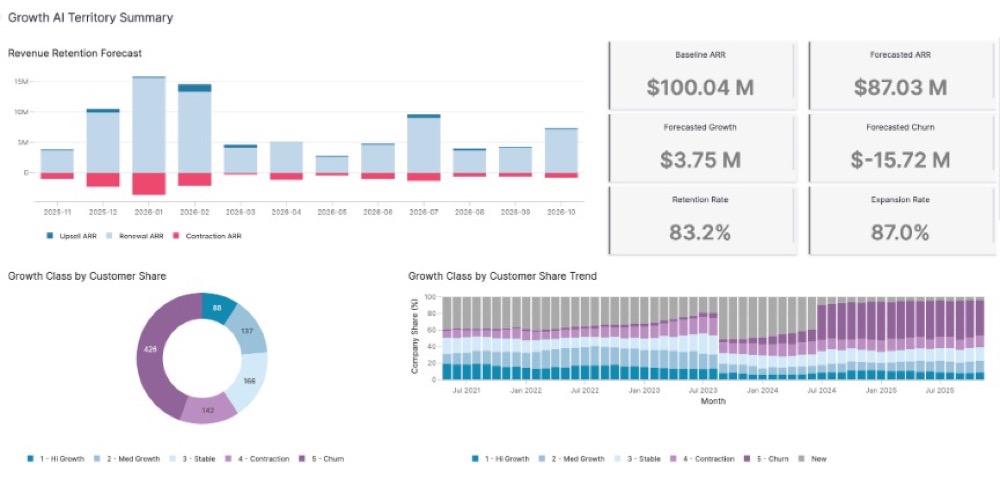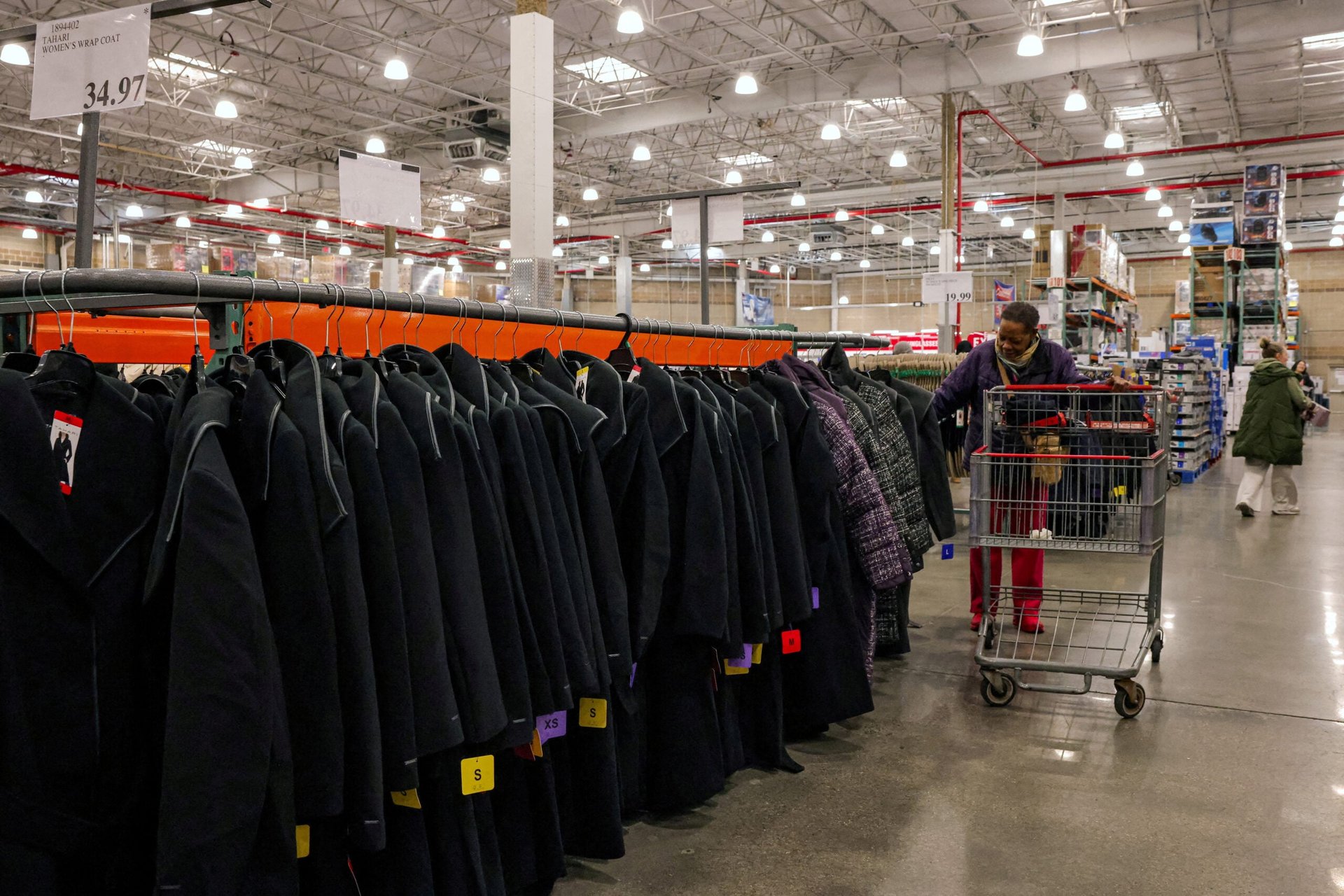As companies push to increase efficiency and stay competitive, they’re encouraging, or in some cases outright requiring, workers to know how to use AI tools. However, the push for AI use has exposed a training gap.
“There are few solutions available on the market that are dedicated to non-technical people,” Aureliusz Gorski, founder and CEO of Warsaw-based CampusAI, told TechCrunch.
CampusAI’s solution? An educational platform focused on making learning accessible to everyday people who want to bring AI into their everyday workflows — whether that’s to help improve sales, HR, legal, or just give your personal branding a boost with AI. The platform aims to help people understand and work with AI, rather than be intimidated by it.
The Polish startup spoke to TechCrunch ahead of the TechCrunch Disrupt conference, where it’s a Startup Battlefield Top 20 finalist. CampusAI’s main product is a comprehensive online learning ecosystem with two key components: courses featuring an avatar-based learning model and a virtual campus in the metaverse where users can learn more skills, connect with others, participate in community projects, and more. Think of it like Roblox for adults.
CampusAI offers its learning platform directly to consumers or to businesses that want to create AI upskilling paths for employees. The startup says it provides access to dozens of AI models — from ChatGPT and Gemini to Midjourney and Flux — so users can experiment and learn in one place without needing to sign up for separate accounts and subscriptions. The team also updates courses every day to keep up with the fast pace of technological change.
CampusAI’s flagship course for consumers is called Me+AI, priced at $250 per year, and it allows students to personalize their learning experience. The B2B product, called Team+AI, is priced at $25,000 per year.
“We are helping with the implementation of the human plus AI readiness culture [within companies], helping companies go smoothly with this transition,” Gorski said.
Techcrunch event
San Francisco
|
October 27-29, 2025
The first three weeks of Team+AI include an AI readiness test for the organization, a workshop for managers, and a webinar for the entire organization. The last four weeks feature personalized development paths for employees that have been adapted to meet company goals.
“You can come in as a professional of a field, say, an HR expert, or someone who works in finance, and then you’ll find a batch of courses for yourself,” Aleksandra Przegalińska, an AI researcher and scientific adviser to CampusAI, told TechCrunch. “CampusAI is capable of preparing specific pathways for specific organizations so they can do a tailor-made approach.”
CampusAI’s learning methodology is based off Przegalińska’s research on human-AI collaboration for improved business results and complex problem-solving. The approach centers on using prompting strategies to develop AI experts that support individuals in enhancing their capabilities.

As such, CampusAI students have access to the company’s prompt book, which not only offers a repository of prompts, but also coaches students to learn how to build better prompts. Within the virtual campus environment, students can also visit the “AI Gym” — a platform where students tackle targeted exercises and challenges created by an AI agent that provides ongoing assessment.
“We want to build an environment where you don’t delegate tasks to AI, but rather, you work with it in multiple different modalities,” Przegalińska said. “You can work in parallel with it, it can become your teammate, your sparring partner, your critic, or your coach. We think of this technology as something that is enhancing your work, not something that is taking over your work.”
CampusAI claims its courses produce a measurable ROI, with employees becoming 40% more efficient and 60% more satisfied with their jobs. And the two-year-old company appears to have had some serious traction.
“It was huge success in Poland in the first two weeks,” Gorski said, noting the company launched in 2023. “We got over 600 clients who decided to buy our lifetime membership, and from that moment, we grew to 35,000 users.”
CampusAI also boasts 60 enterprise customers, including ING, T-Mobile, Lenovo, and Ikea, and is on track for more than $2 million in ARR in 2025. The company is currently raising a $20 million Series A to help it expand to 40 markets by 2030. CampusAI, which offers its program today in Polish, English, and Spanish, has recently expanded into the U.K. and the U.S., with a focus on building B2B sales before branching into D2C.
Users who complete the courses and want to discover more can be invited to join Community+AI, a digital hub for members to connect, share knowledge, and collaborate on projects — like hAI Magazine, an online magazine where users can share sector-specific insights.
Beyond its learning environment, Gorski said CampusAI’s digital twin technology has become a major value proposition. Instead of just running its own virtual campus, CampusAI wants to build and license digital twins of real-life university campuses, corporate showrooms, government institutions, or company headquarters for organizations’ exclusive use. The digital twins product starts at $100,000 per year.
CampusAI recently secured €18 million from the European Commission to collaborate with 11 universities across 10 countries — including Greece, Spain, the U.K., France, Luxembourg, and Germany — to create digital twins and customized learning environments for students.
Gorski views these university partnerships as launchpads for local innovation hubs — an approach informed by his seven years at Cambridge Innovation Center, where he created over 10 programs to develop Warsaw’s startup community. These virtual environments are designed as catalysts for building local communities and virtual districts, ultimately creating a social platform tailored for entrepreneurs.
He emphasized that fostering strong local ecosystems is critical to counter big tech dominance.
“We believe people should focus on building strong local ecosystems, because if not, the next five years will probably have less and less startups, especially after what we saw recently with OpenAI providing more solutions inside one ecosystem,” he said.
If you want to learn more about CampusAI from the company itself — while also checking out dozens of others, hearing their pitches, and listening to guest speakers on four different stages — join us at Disrupt, October 27 to 29 in San Francisco. Learn more here.

























